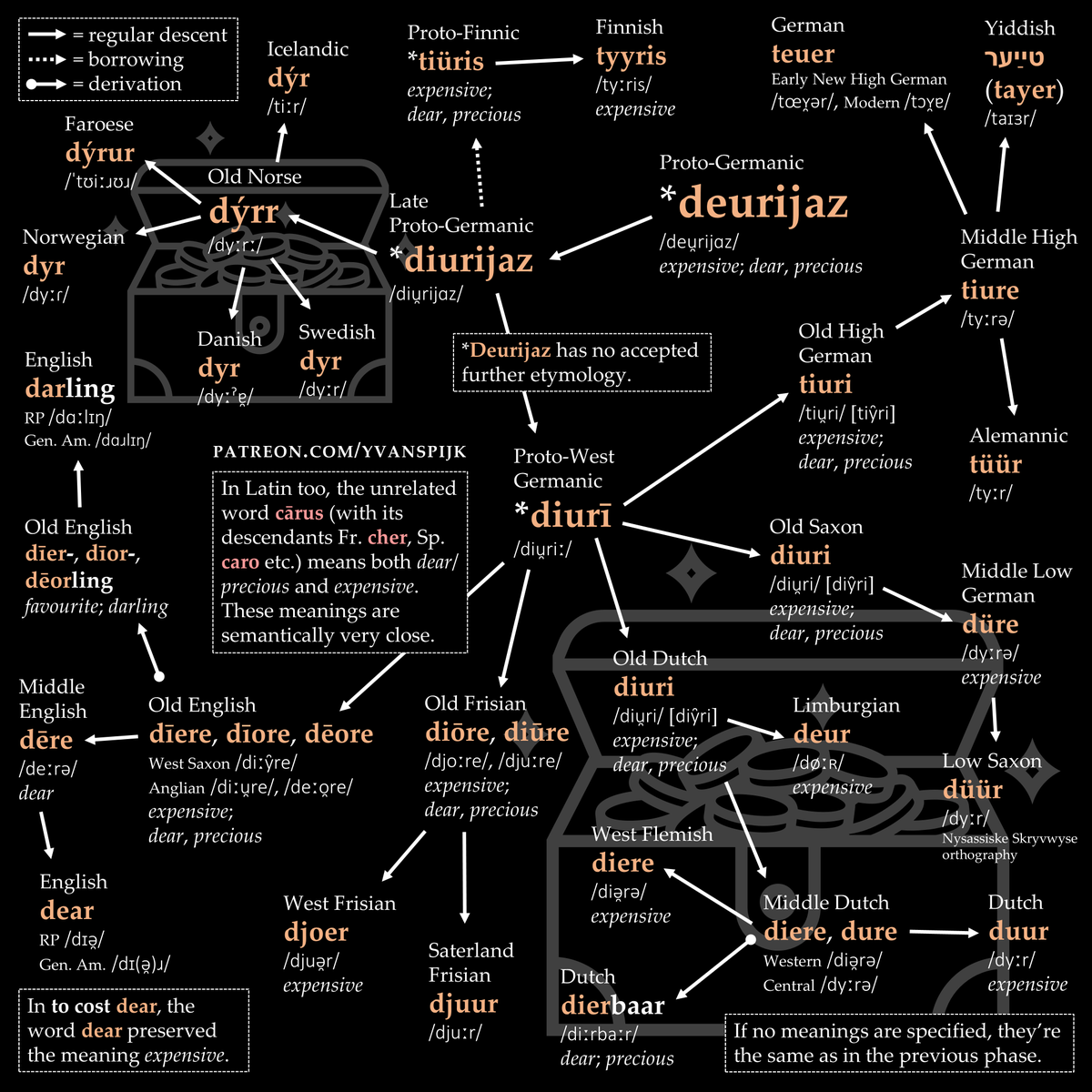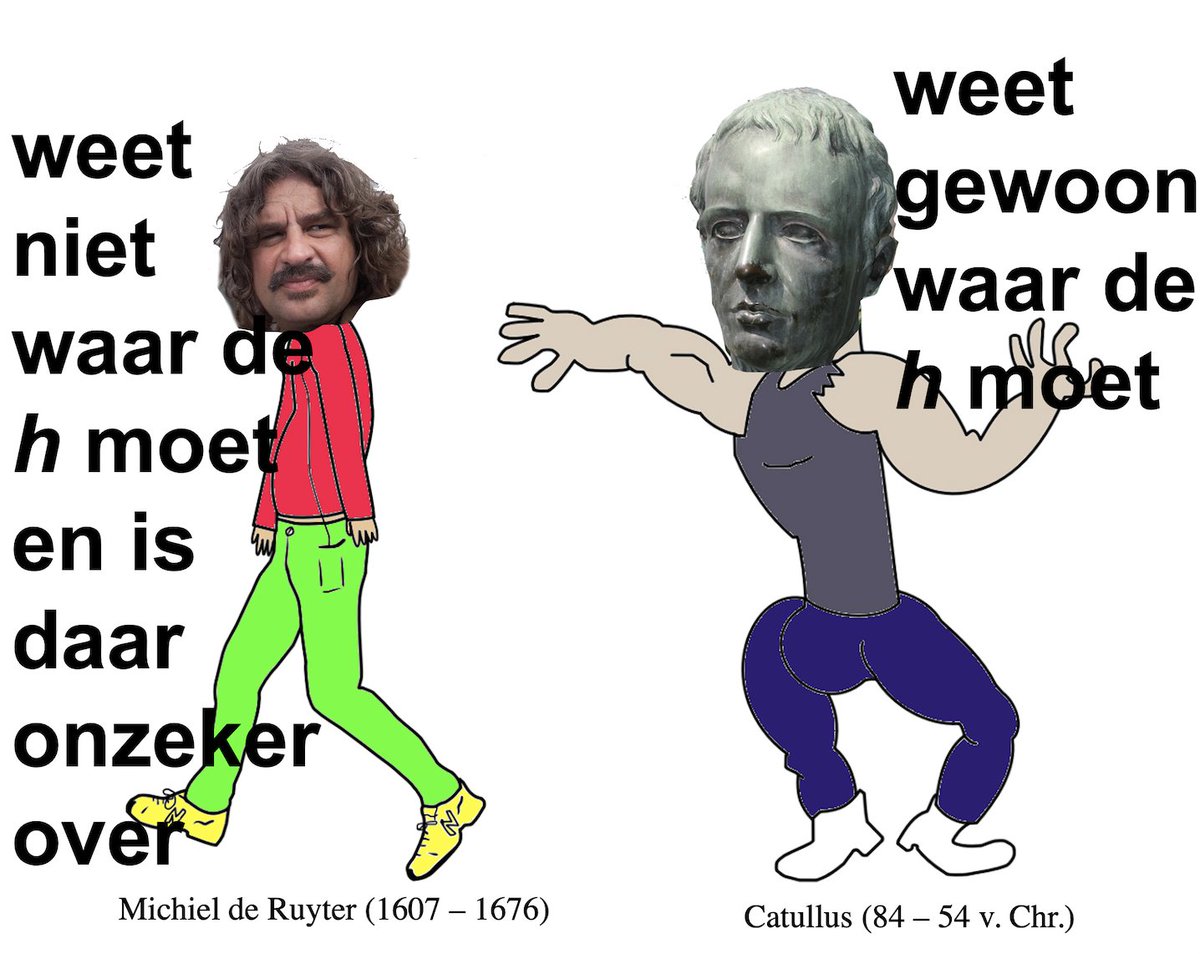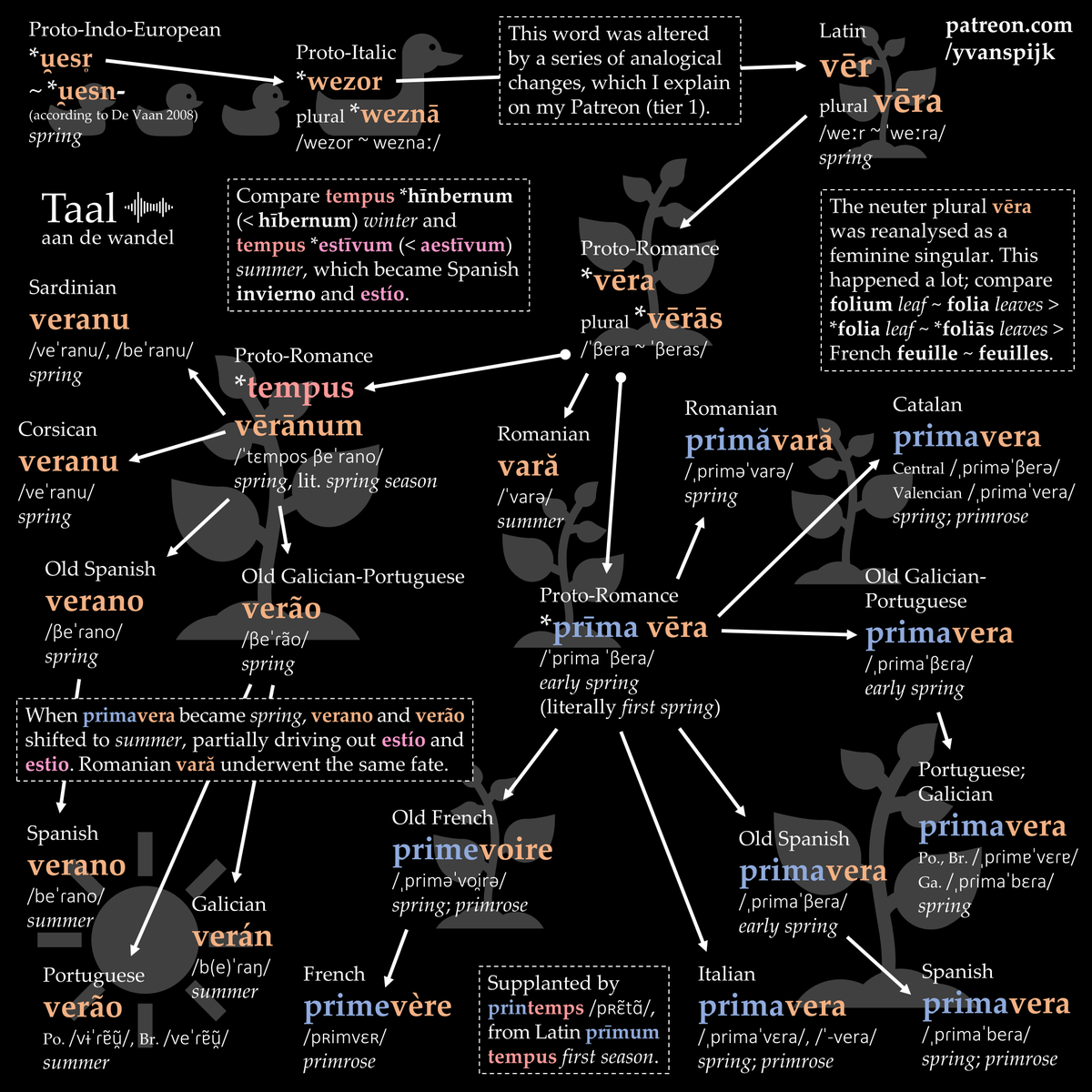
Yoïn van Spijk
@yvanspijk
/'dʒowɪn/
• historisch taalkundige | historical linguist
• dialectoloog | dialectologist
• See my Tumblr for all graphics and videos: https://t.co/vDE6Wth705
ID:305530695
http://patreon.com/yvanspijk 26-05-2011 11:28:22
19,6K Tweets
18,2K Followers
714 Following












Benieuwd: wat zeg je in jouw dialect tegen NL 'braam'?
Ik (Woudfries, geb. 1975): toarnbei = 'doornbes'
Yoïn van Spijk Onze Taal Miet 👩🦰 Ooms - buurtaalt, leestekent en podcast Marc van Oostendorp
RT=👍







